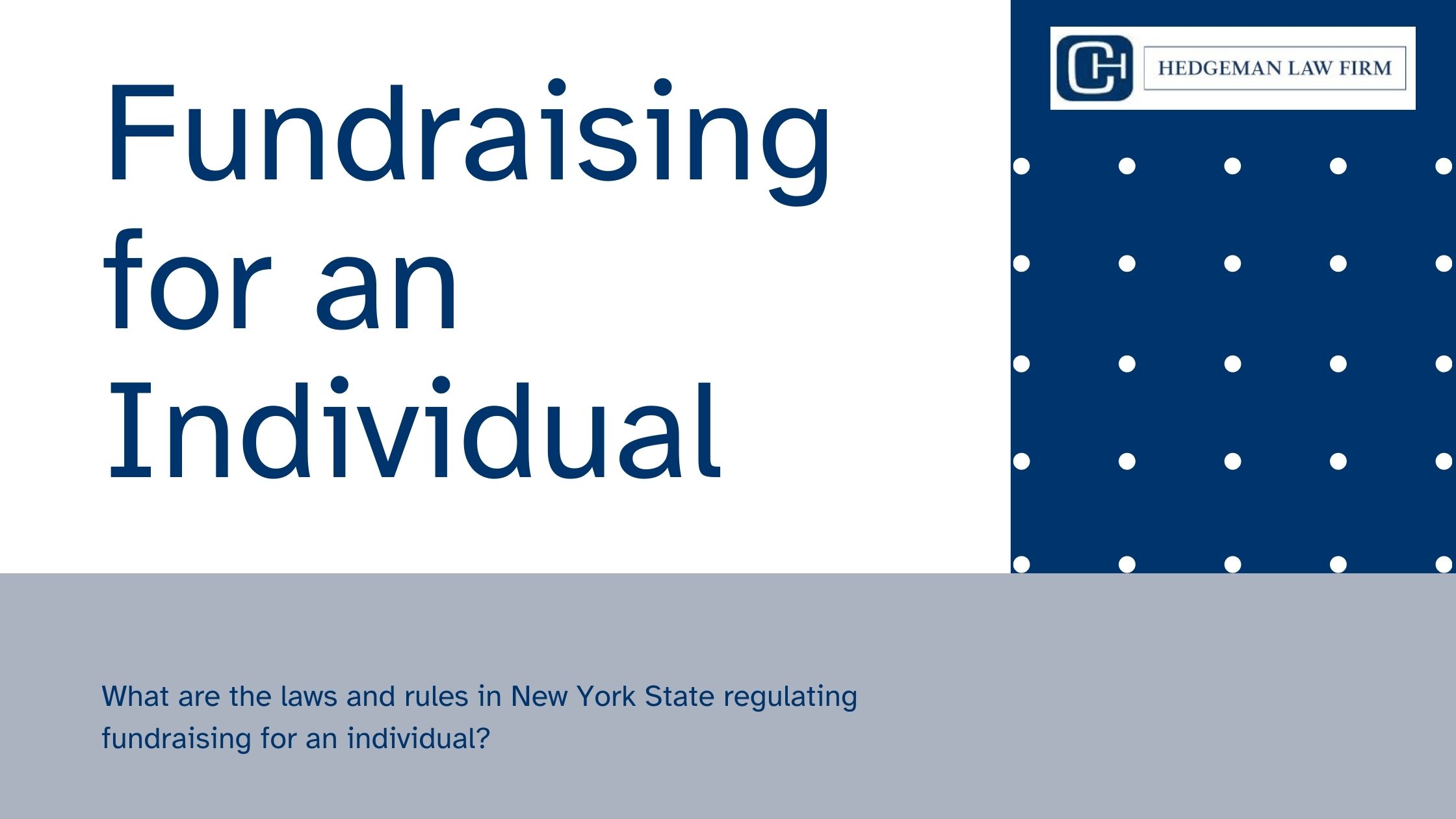New York Rules for Fundraising for an Individual

What are the laws and rules in New York State regulating fundraising for an individual?
There are certain circumstances where one would need to file with the attorney general to fundraise for an individual. Next, there may be up to three secondary beneficiaries stated. For these beneficiaries to be official multiple requirements must be fulfilled. If secondary beneficiaries have not been correctly filed and the correct steps are taken the remaining funds may be allocated to an individual or organization that has the same or similar purpose as the original beneficiary. Lastly, there are many actions that are prohibited when fundraising for an
individual.
An individual does not have to file with the attorney general if the person requesting any contributions for the individual, specified by name at the time of solicitation, if all the contributions collected, without any deductions whatsoever, are paid to or for the benefit of the named beneficiary. NY Exec L § 172-A (2016). Prior to anyone starting solicitation, the principal person requesting contributions may file a form with the attorney general. The form format can be found in The New York State Senate under article 172-A. Id.
When fundraising for an individual and not an organization, an individual may list up to three secondary beneficiaries. Id. These secondary beneficiaries would step in, if circumstances would render it impossible or impracticable to use any of the money for the original beneficiary. The three designated secondary beneficiaries can either be individuals or organizations. Id. These beneficiaries would be considered ineffective until such form has been filled out and filed with the Attorney General. NY Exec L § 172-A (2016). All the individuals that are requesting contributions must have informed the person they are soliciting from of the filing of the three
secondary beneficiaries. Id.
In the instance that it becomes impossible or impractical for the primary beneficiary to use or collect the money, and there are no designated secondary beneficiaries, then specific protocol needs to be followed. Id. Then either the attorney general, the primary beneficiary or any individual that has requested a contribution may petition to the court that the remaining money shall be transferred to a charitable organization that has a similar purpose to those of what the contributions were collected for, under the circumstances next stated. Id. The petition must be on notice to the attorney general, the primary beneficiary (if living), any secondary beneficiaries, and the principal person who requested the contributions. Id. The “principal person requesting the contributions” is the person who is primarily responsible for soliciting funds to the relief of the specific individual. Id. The “principal person requesting the contributions” does not include any individual who solicits funds to then send it later to the principal person requesting the contributions. NY Exec L § 172-A (2016).
If within sixty days of the receipt the money collected for the relief of the individual is, paid to or for the benefit of the primary beneficiary without any deductions whatsoever then all the requirements stated in the above two paragraphs have been met and complied with. Id.
When applying for a fundraiser it is prohibited to make a false statement or to fail to disclose a fact on “an application for registration, registration statement, a claim of exemption, financial report or any other forms or documents required to be filed or filed pursuant to this article[.]”. NY Exec L § 172-D (2016). Individuals are prohibited from engaging in fraudulent or illegal acts, or using false representations when soliciting money or when registering/reporting disclosure under this provision. Id. In the instance stated above fraudulent is described as, being “misleading or deceptive” and is further explained in NY Exec L § 63, to prove fraud there is no
need to prove intent or injury. Id. It is also prohibited behavior to use false or misleading statements when advertising or promoting material in connection with solicitation. Id. Individuals are prohibited from applying contributions in a way that is not consistent with what was explained or advertised when soliciting them. Id.
Individuals are not allowed to enter into a contract/agreement that employs or engages “any professional fundraiser, fundraising counsel or professional solicitor” who needs to be registered in accordance with “this article unless such professional fundraiser, fundraising counsel or professional solicitor” has given a statement that is signed under the penalties of perjury, and that this statement is registered and in compliance with the filing requirements of the article. Id. There are further prohibitions that can be explored at New York State Senate under
article 172-D.
